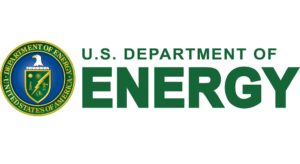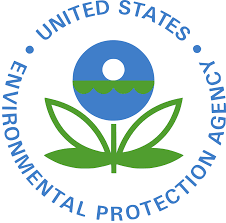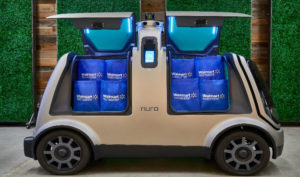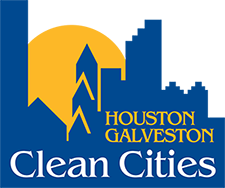DOE and the Environmental Protection Agency just released the 2020 Fuel Economy Guide. The Guide provides detailed fuel economy estimates for model year 2020 light-duty vehicles, along with estimated annual fuel costs and other information for prospective car buyers.
The Guide provides detailed fuel economy estimates for model year 2020 light-duty vehicles, along with estimated annual fuel costs and other information for prospective car buyers.
Monthly Archives: December 2019
Diesel Emissions Reduction Act (DERA) Grants are Available
EPA anticipates awarding approximately $44 million in competitive grant funding under the Diesel Emissions Reductions Act (DERA) National Grants Program. The program is soliciting applications nationwide for projects that achieve significant reductions in diesel emissions and exposure, particularly from fleets operating in areas designated by the Administrator as poor air quality areas.
Application packages must be submitted electronically to EPA through Grants.gov ( www.grants.gov ) no later than Wednesday, February 26, 2020, at 11:59 p.m. (ET) to be considered for funding.

Wednesday, December 11, 2019; 1:00 p.m. (ET)Join Webinar Wednesday, December 18, 2019; 3:00 p.m. (ET)Join Webinar Tuesday, January 14, 2020; 3:00 p.m. (ET)Join Webinar 1+ (202) 991-0477, 4149804# (audio dial-in number)
Supporting Information for RFA
- 2020 Sample Project Narrative (WORD)(16 pp, 700 K, December 2019)
- 2020 Sample Application Fleet Description (EXCEL)(713 K, December 2019)
- 2020 Sample Scrappage Statement (WORD)(1 pg, 15 K, December 2019)
- 2020 Sample Eligibility Statement (WORD)(1 pg, 26 K, December 2019)
- 2020 Sample Drayage Operating Guidelines (WORD)(2 pp, 47 K, December 2019)
- 2020 Priority Area List (PDF)(13 pp, 684KB, December 2019)
- 2020 DERA Transport Refrigeration Unit (TRU) Factsheet (PDF) (4 pp, 90 K, December 2019, EPA-420-F-19-074, About PDF)
Questions and AnswersAll applicants are encouraged to review the Questions and Answers (PDF)(13 pp, 270 K, December 9, 2019) for further clarification of this Request for Applications. The deadline for submitting questions is February 14, 2020 at 4 p.m. ET. The final Questions and Answers document will be posted on February 19, 2020 at 4:00 p.m. All questions and answers, including those from all webinar information sessions, will be added to this document.
Eligible ApplicantsThe following U.S. entities are eligible to apply for DERA National Grants:
- Regional, state, local or tribal agencies/consortia or port authorities with jurisdiction over transportation or air quality
- Nonprofit organizations or institutions that represent or provide pollution reduction or educational services to persons or organizations that own or operate diesel fleets or have the promotion of transportation or air quality as their principal purpose.
School districts, municipalities, metropolitan planning organizations (MPOs), cities and counties are all eligible entities to the extent that they fall within the definition above.
Please refer to the full RFA for specific information about this competition.
Eligible Uses of FundingEligible diesel vehicles, engines and equipment include:
- School buses
- Class 5 – Class 8 heavy-duty highway vehicles
- Locomotive engines
- Marine engines
- Nonroad engines, equipment or vehicles used in construction, handling of cargo (including at ports or airports), agriculture, mining or energy production (including stationary generators and pumps).
Grant funds may be used for diesel emission reduction projects including:
- EPA verified technologies or certified engine configurations
- California Air Resources Board (CARB) Exit verified technologies or certified engines
- Idle-reduction technologies that are EPA verified
- Aerodynamic technologies and low rolling resistance tires that are EPA verified
- Early engine, vehicle, or equipment replacements with certified engine configurations
Funds awarded under this program cannot be used to fund emission reductions mandated by federal law. Equipment for testing emissions or fueling infrastructure is not eligible for funding.
Please refer to the full RFA for specific information about this competition.
Grant ProcessThe RFA includes information on how to prepare and submit a proposal package. The proposal package must be received by the deadline and include the following documents:
- Project Narrative (no more than 11 pages)
- Standard Form SF 424 – Application for Federal Assistance
- Standard Form SF 424A – Budget Information
- Standard Form 424B – Non-Construction Programs
- EPA Form 4700-4 – Pre-Award Compliance Review
- EPA Key Contacts Form – Key Contacts Form
- Applicant Fleet Description information (not included in the page limit)
- Emissions Reduction Calculations (not included in the page limit)
- Cost-Share Commitment Letters, if applicable (not included in the page limit)
- Partnership Letters, if applicable (not included in the page limit)
- Mandated Measures Justification Supporting Information, if applicable (not included in the page limit)
After the closing date, all eligible applications will be reviewed and ranked. Selected projects may be fully or partially funded.
Tools and Resources for Applicants
- Tips for a Successful Diesel Retrofit Project (PDF) (7 pp, 500 K, April 2013, EPA-420-B-13-025) provides tips to help you get started and avoid common mistakes.
- Technology Tips: Diesel Emissions Reduction Program (DERA): Technologies, Fleets and Projects Information (PDF) (36 pp, 1.3MB, October 2011, EPA-420-P-11-001) provides information about retrofit technologies and what to look for.
- Clean Diesel Clearinghouse (CDCH) Exit is a web-based tool that helps users determine the best available emission reduction technology for retrofitting diesel-powered vehicles and equipment.
- Shore Power Technology Assessment at U.S. Ports
Spotlighting Innovation: Nuro + Walmart Pilot Program

Walmart announced a new pilot program that will test autonomous grocery delivery in the Houston market starting next year. The retailer is partnering with autonomous vehicle company Nuro, a robotics company that uses driverless technology to deliver goods to customers. Nuro’s vehicles in this case will delivery Walmart online grocery orders to a select group of customers who opt into the service in Houston.
The autonomous delivery service will involve R2, Nuro’s custom-built delivery vehicle that carries products only with no on-board drivers or passengers, as well as autonomous Toyota Priuses that deliver groceries. The program’s goal is to learn more about how autonomous grocery delivery could work and how such a service can be improved to better serve Walmart’s shoppers.
Nuro’s focus to date has been developing a self-driving stack and combining it with a custom unmanned vehicle designed for last-mile delivery of local goods and services. The vehicle has two compartments that can fit up to six grocery bags each.
The company has raised more than $1 billion from partners, including SoftBank, Greylock Partners and Gaorong Capital. In March, the company announced it had raised $940 million in financing from Softbank Vision Fund.
Nuro is known for its pursuit of autonomous delivery. But it also licensed its self-driving vehicle technology to Ike, the autonomous trucking startup. Nuro’s partnership with Walmart is hardly its first. The company partnered with Kroger (Fry’s) in 2018 to test autonomous Prius vehicles and its custom-built robot, R1. The R1 autonomous vehicle was operating as a driverless service without a safety driver on board in the Phoenix suburb of Scottsdale. In March 2019, Nuro moved the service with Kroger to Houston, beginning with autonomous Priuses. In 2020, Nuro will test its second-generation robot, R2, with Kroger, Domino’s as well as Walmart.
The Nuro partnership isn’t Walmart’s first autonomous delivery pilot, either.The retailer earlier this year tapped the startup Udelv to test autonomous grocery deliveries in Arizona . This summer, it kicked off a test with Gatik A.I. , an autonomous vehicle startup to test grocery delivery from Walmart’s main warehouse in Bentonville, Arkansas. Walmart also launched a pilot with self-driving company Waymo in 2018 to test rides to Walmart for grocery pickup, as well as a test with Ford and Postmates for autonomous grocery delivery .
“Our unparalleled size and scale has allowed us to steer grocery delivery to the front doors of millions of families – and design a road map for the future of the industry,” said Tom Ward, Walmart’s SVP of digital operations, in a statement. “Along the way, we’ve been test driving a number of different options for getting groceries from our stores to our customers’ front doors through self-driving technology. We believe this technology is a natural extension of our Grocery Pickup and Delivery service, and our goal of making every day a little easier for customers,” he added.
The retailer’s investments in its online grocery business helped boost sales and benefited consumers by offering an affordable competitor to Amazon, Target’s Shipt, Instacart, and others. In Q3, Walmart’s grocery business helped online sales grow 41%, ahead of the 35% gain expected.
Walmart says its pilot program will Nuro will kick off in 2020.
$12 Million Available: TCEQ Announces New Round of Grants for Alternative Fueling Facilities!
|
